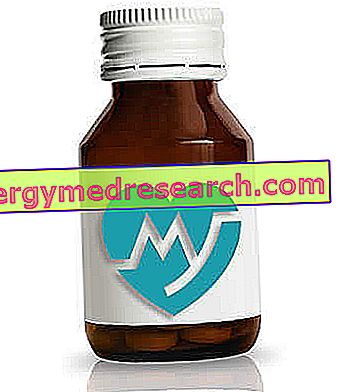
What is OPTISON?
OPTISON is a suspension for injection. It consists of microspheres (tiny balls) of thermally treated human albumin containing the active ingredient perflutren gas.
What is OPTISON used for?
OPTISON is intended for diagnostic use only. It is a "contrast agent" that facilitates the visualization of internal structures in diagnostic imaging tests. OPTISON is used to obtain a clearer view of the cardiac cavities, especially of the left ventricle, in echocardiography (diagnostic examination of the heart by ultrasound). OPTISON is used in patients with established or suspected cardiovascular disease, when the study without the use of contrast media has not given appreciable results.
The medicine can only be obtained with a prescription.
How is OPTISON used?
OPTISON should only be administered by doctors experienced in ultrasound diagnostic methods (with ultrasound). Ultrasonography should be performed simultaneously with OPTISON injection, because the optimal effect is obtained in the first 2.5-4.5 minutes after administration. OPTISON is injected slowly into a vein, usually in the right arm. The recommended dose is 0.5 - 3.0 ml per patient.
The total dose should not exceed 8.7 ml per patient. Echocardiography with OPTISON must be accompanied by an electrocardiogram (ECG) heart check. For more information, see the package leaflet.
How does OPTISON work?
OPTISON is an ultrasound contrast agent. Ultrasound uses high-frequency sound waves to visualize certain parts within the body. The sound waves produced by the ultrasound device can be reflected by various body structures, for example from the heart. OPTISON contains albumin microspheres filled with gas, capable of producing a different echo depending on the tissues highlighted during the ultrasound examination. Once administered, OPTISON flows into the veins until it reaches the heart, where it allows echocardiography to obtain a better contrast effect between the area where the gas spheres are located (for example, the cavities of the heart) and the tissue surrounding. The gas is then expelled through the lungs.
What studies have been carried out on OPTISON?
The effects of OPTISON have been tested in experimental models before being studied in humans.
The efficacy of OPTISON has been examined in two main studies involving a total of 203 patients. Each patient received an injection of OPTISON and an injection of air-filled albumin beads as a reference drug. The injections were given on different days, with an interval of 2-10 days between the two drugs. The main parameters to measure the efficacy of the drug were, on the one hand, the length of the endocardium (the surface that covers the inner walls of the heart) of the left ventricle measured before and after the administration of OPTISON and of the reference drug and, on the other hand, the observer's evaluation of the change in visibility of the left ventricular endocardium before and after each injection.
What benefit has OPTISON shown during the studies?
OPTISON was more effective than the reference drug in improving the visibility of the left ventricular endocardium. In the first study, the length of the endocardium that could be visualized increased by 7.8 cm with OPTISON compared to 3.7 cm of the reference drug. In the second study the visible length increased by 7.1 cm with OPTISON and 3.1 cm with the reference drug. In both studies, the observer reported an improvement in endocardial visualization in a greater number of patients after OPTISON injection compared to the reference drug.
What is the risk associated with OPTISON?
The most common side effects seen with OPTISON (seen in 1-10 patients in 100) are dysgeusia (taste disturbances), headache, redness and sensation of heat. For the full list of all side effects reported with OPTISON, see the Package Leaflet. OPTISON must not be used in patients who are hypersensitive (allergic) to any of the components, in particular human albumin, or in subjects suffering from pulmonary hypertension (increased blood pressure in the pulmonary artery, the blood vessel that is directed from the heart to the lungs).
Why has OPTISON been approved?
The Committee for Medicinal Products for Human Use (CHMP) decided that the benefits of OPTISON outweigh the risks in the diagnostic tests of patients with suspected or established cardiovascular disease. and therefore recommended that it be given marketing authorization.
Other information on OPTISON:
On 18 May 1998 the European Commission issued a marketing authorization for OPTISON, valid throughout the European Union. The marketing authorization was renewed on 15 May 2003. The marketing authorization holder is GE Healthcare AS.
The full EPAR for OPTISON can be found here.
Last update of this summary: 01-2007.



